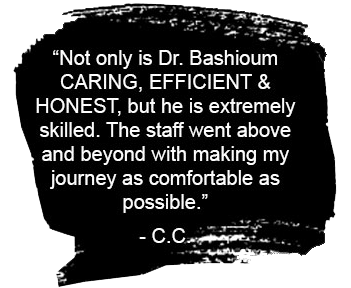Anti-Aging of the Future: Fat Grafting
March 20th, 2013
Last week in Miami, I participated in the American Society of Plastic Surgeons 1st Regenerative Medicine Summit focusing on fat grafting. This is the wave of anti-aging treatments of the future.
Regenerative medicine has the real potential to change the way we treat the aging body, impacting both reconstructive and aesthetic surgery. It is the future of medicine happening right now. ASPS’s summit focused on clinical applications of regenerative medicine and fat grafting for both aesthetic and reconstructive surgery.
Of particular interest to me are the advancements in implant-free breast enlargements and incision-free facial rejuvenation. This is an exciting time to be a plastic surgeon. More on that next.
Cosmetic Surgery Too Much of a Good Thing?
November 26th, 2012
When is cosmetic surgery too much of a good thing? I filmed a segment for the local Fox News Affiliate here in Minneapolis, hosted by Medical Correspondent, Dr. Archelle Georgiou. They filmed part of the segment while I was performing a lower blephaorplasty or lower eyelid surgery. My patient did have some other plastic surgery in the past and while gathering routine background information, Dr. Georgiou inquired whether I felt that the patient was perhaps choosing cosmetic surgery too often. In other words, did I think the patient suffered from a possible cosmetic surgery addiction? As with all my patients, I am careful to evaluate a patient’s motivations for surgery and attempt to uncover any unhealthy desires for seeking cosmetic surgery. In this case, I feel confident that my patient had legitimate concerns regarding the unsightly bags under her eyes and that she was an excellent candidate for eyelid surgery. She expressed realistic expectations from the surgery and in my opinion; she is certainly not a cosmetic surgery addict.
However, while we are on the topic, let me elaborate. There are several characteristics that are common among cosmetic surgery addicts and for the most part, they are not dissimilar to other addictions. Patients that have Body Dysmorphic Disorder are likely to seek cosmetic surgery to correct “perceived†physical flaws. This disorder has significant psychological components and it is unlikely that any amount of cosmetic surgery will correct feelings of having physical deformity that may not exist. This disorder leads some patients to have excessive cosmetic surgery. As a physician, I feel a professional and moral obligation to refer patients that exhibit these difficulties to the proper psychological care when it is appropriate.
Without a doubt there are patients who do suffer from this problem. The pop culture media machine is quick to point out the cosmetic surgery obsessions of Michael Jackson, New York’s “Cat Woman†and Joan Rivers, to name just a few.
